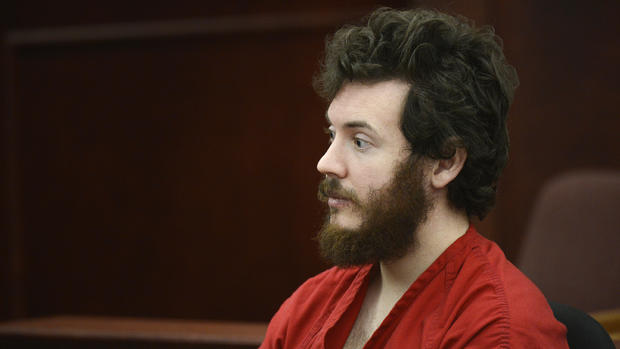Judge rejects Colo. shooting suspect's challenge to insanity law
DENVER Colorado's laws on insanity pleas and the death penalty are constitutional, a judge ruled Wednesday, rejecting a key argument by lawyers for the defendant in the deadly movie theater shootings.
Attorneys for James Holmes contended the laws could work in combination to potentially cripple the insanity defense if the case ever gets to a jury. They wanted Judge Carlos A. Samour Jr. to address their concerns before Holmes formally enters a plea of not guilty by reason of insanity.
Wednesday's ruling could clear the way for Samour to accept Holmes' insanity plea at a hearing scheduled for Friday. But the defense could ask the state Supreme Court to overturn the ruling, further delaying the case.
Holmes' lawyers will likely consult with attorneys who specialize in appeals before deciding, said Karen Steinhauser, a former prosecutor now in private practice who is not part of Holmes' defense team.
- Accused Colo. movie theater shooter received 6 shipments of ammo before shooting, court records say
- Accused Colorado movie theater shooter requests insanity plea
- Judge delays decision on James Holmes' insanity plea
Holmes is accused of opening fire on a packed movie theater in the Denver suburb of Aurora in July, killing 12 people and injuring 70. He faces multiple counts of murder and attempted murder.
Prosecutors are seeking the death penalty.
Holmes' lawyers say he wants to plead insanity, which is widely seen as his best chance of avoiding execution. But the attorneys have delayed the plea for weeks, saying his rights could be jeopardized.
The laws state that if Holmes does not cooperate with doctors conducting a mandatory mental evaluation, he would lose the right to call expert witnesses to testify about his sanity during the penalty phase of his trial.
At a hearing last week, defense lawyer Kristen Nelson argued that would violate the 8th Amendment to the U.S. Constitution, which bars cruel and unusual punishment.
"You cannot place this kind of restriction on a defendant's ability to present mitigating evidence," she said.
Holmes' attorneys also contended the law doesn't define cooperation, and they need to know the legal meaning in order to advise Holmes whether or not to agree to a polygraph examination or a "narcoanalytic interview" in which he could be administered a so-called truth serum.
Prosecutors argued the Constitution and court precedents give the state the right to regulate what mitigating evidence can be introduced in the penalty phase of a trial.
They also said the word "cooperate" is unambiguous.
In his ruling, Samour said the law's restrictions on presenting mitigating evidence about a defendant's mental state are not as broad as the defense claimed.
Samour also said he would require state doctors to get Samour's permission to use a narcoanalytic interview, noting that prosecutors have already agreed to such an arrangement.
Holmes needs court permission to change his plea because a judge entered a standard not guilty plea on his behalf in March. Samour is likely to approve the change, but Holmes would first have to agree to the conditions, including the requirement that he cooperate during the mental evaluation.
